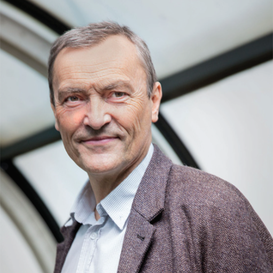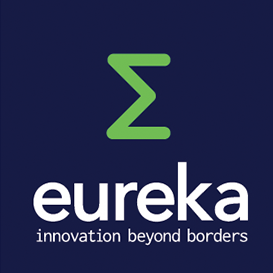Innovare
to make new again
ITEA Chairwoman Zeynep Sarılar in conversation with President of Esri Canada Alex Miller
The news of the day and the crucial phase in which civilisation finds itself provide the inevitable backdrop to this conversation about entrepreneurship – after all, business is carried out in a context. And that context is the COVID-19 pandemic, geopolitics and the wider implications of data and privacy. Indeed, Alex points out how the efforts in Canada to instigate COVID tracking in the public interest are coming up against privacy concerns and the legal framework.
“It’s a very interesting time for software and software innovation,” Zeynep remarks. “I understand the dilemma, and it’s not an easy one to resolve. It’s an issue we see reflected in some ITEA projects, too. How far can you take the tracking of individuals without impinging on their privacy? Last week, we met for a project review and it was clear that it was not only a question of the technology but also the extent to which the innovation complies with the legal rights in respect of using data. We’ve gone from gathering data to understanding the data and now the rights of use.”
Necessity is the mother of invention
“That’s true,” Alex says, picking up the subject. “We were contacted in the summer by CANON, a Canadian anonymisation network about providing a cloud service whereby the organisations in that network would be able to take, upload and anonymise data suitable for publishing. Two methods for doing this are currently being used: aggregation, a method that is widely used by statistical companies, and data synthesis or synthetic data. I had not heard of this term before but I realise I’ve been doing this for all my working life. And in fact, it is what we did in PS-CRIMSON. You take all the property assessment data – real sales – and a number of specific characteristics, such as size of the property or proximity to public transport, and apply the set of characteristics to all the properties to derive en masse market value assessments for all the properties. However, this is synthetic data – only the properties that are actually sold represent real data. And for COVID-19, you would use the same method, applying comorbidity characteristics, like obesity or high blood pressure, to create a surface of individuals modelled on the basis of synthetic data and thereby identify the vulnerable groups and individuals. The third method that I am developing is an adaptive algorithm whereby clusters are created for a minimum number of people but are geographically aligned and use population characteristics to make the data meaningful. It’s early days yet but we are getting some funding to help us along the way.”
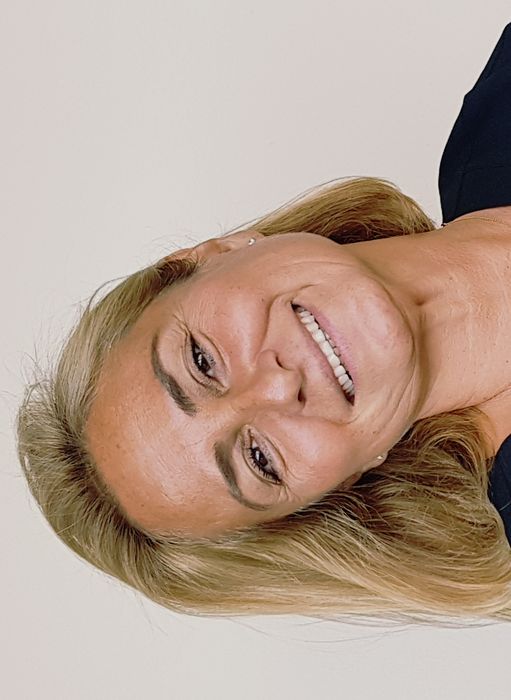
ITEA Chairwoman
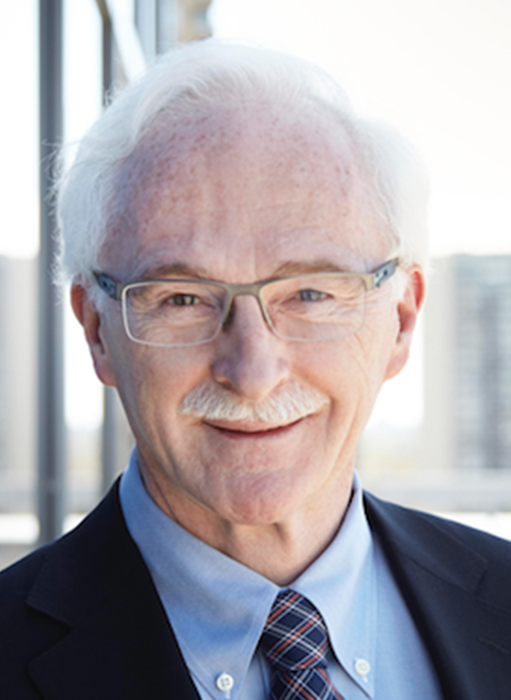
President Esri Canada Limited
See what others can’t
“And there you are, the entrepreneur in action! It’s great to have you and Canada quite literally on board at ITEA. I’m really fascinated to find out how you look at entrepreneurship. And I think it would be nice to share some of your views with the wider ITEA Community,” Zeynep says invitingly.
“I have to start with a true story,” Alex begins, anecdotally. “Of course, we all know who George W. Bush is. In the wake of 9/11, he felt let down by his French allies who had refused to join the coalition forces in Iraq, complaining about their work ethic and even rebuking them for not even having a word for ‘entrepreneur’. Perhaps he didn’t have French at school. But in all seriousness, we have been using a tagline at Esri in our marketing campaign. It’s ‘see what others can’t’. An entrepreneur is, first and foremost, one who sees what others can’t. Such as using geographic information systems to see what others can’t. Entrepreneurs and visionaries share this characteristic. And when Steve Jobs came up with the tagline ‘think different’, this was an appeal to not follow conventional thinking. Of course, conventional thinking is a must when stability is key. After all, the lights have to stay on when it comes to utility companies and we want our governments to be solid. I should add, taking the ‘see what others can’t’ a step further, that entrepreneurs also see the business opportunities, and build an organisation to make them happen.”
Making the dream come true
“I agree,” Zeynep says. “Along with that vision it is, of course, important to have one foot firmly on the ground. There are plenty of people who have a dream but to make it come true, there has to be some benefit – financial or otherwise – a tangible and realistic target.”
“Sure,” Alex replies. “I think one of the traits you need to be successful as an entrepreneur is to hire people who are smarter than you are. Like a CFO and a COO who know much more than you do about their areas of expertise and can do the job much more effectively. Often, the entrepreneur who dreams doesn’t have the discipline to spend the night with a spreadsheet determining who has to do what. One of the mistakes some entrepreneurs make is to try to be and do everything. And that goes through to sales – hire someone who can sell the belief, trust that the organisation will deliver on its promises.”
Zeynep interjects. “I understand this argument, and I think it makes a lot of sense. But I would like to ask what’s the role of innovation in this? How is innovation connected with entrepreneurship, from your perspective?”
Make new again
“Let me put it like this,” Alex replies. “Typically, an entrepreneur sees the opportunity amid a kind of chaos – something is not working. The root of the word innovation can actually be found in the Latin innovare, to make new (again). I think what we will see in the healthcare system in its response to the chaos of COVID is an explosion of entrepreneurs and innovation looking at how we can think differently the next time such a situation comes around. There’s technology innovation and business innovation – the latter uses the former to create a new kind of business. Dell is a good example of this. Michael Dell took the technology and used it in a different way, buying components from manufacturers and assembling them in his college dorm, undercutting the competition and building an empire on the basis of online supply. Bill Gates’ great innovation was to separate the operating system from the hardware. Nobody before Gates had ever thought of buying an OS without a computer. I think the world is full of opportunities to make new again.”
A perfect partnership
For me as an entrepreneur, my problem is to apply discipline. That’s where my wife, Mary- Charlotte, comes in. She keeps me from going off into too many different directions. She helps me focus. She has an economic and business degree but then decided to do an education degree and become a math teacher. But that was before she took on the role here at Esri Canada in which we have an inside-outside split. I look out at the customers and she makes sure that everything ticks along as it should on the inside – do we have the right people, do they have the right resources and so on. So, she innovates internally, working with my CFO and COO. The four of us together form our executive management committee. Essentially, then, my wife ensures that we operate from a very stable base, and that gives everyone the assurance they need – after all, employees require stability. I would also mention that she also took another degree in computer science since she said she needed to be able to communicate with me. That’s what I call commitment. And because we do communicate well both in business and in private, I guess you could call us a perfect partnership.”
Ocean of opportunities
“That’s great to see the balance that a woman can bring,” Zeynep says with a smile. “Coming back to what you said about a world full of opportunities. With software we have such an ‘ocean of opportunities’ to create a better life for people across a vast spectrum – healthcare, housing, nutrition, transportation – the list is endless. But, of course, as an entrepreneur you need a certain discipline to get across the finishing line and create an outcome that benefits the customer, and this in turn can create a business stability for the organisation.”
Alex agrees. “Exactly, many entrepreneurs create chaos within the organisation, thinking it’s a good idea to keep people on their toes. That’s not my experience or philosophy. Discomfort is never a good environment for work. And once again, I would like to emphasise here the need for good coaches and good teamwork. Like an ice hockey team, the players don’t need to think about skating but focus on the game. The famous Canadian ice-hockey player Wayne Gretzky was asked how he scored so many goals. He answered that you need to skate to where the puck is going to be, not where it is at that moment.”
Anticipation? “Yes, and reading. You’d be amazed how many entrepreneurs get ideas from reading. I heard that the founder of Shopify, an online supplier of software licences to businesses that want to run their own stores online and extend their reach by doing so, reads two to three hours a day. I do, too. I get new ideas all the time from this. For instance, I read a book – or rather the free version part that’s available on the internet – called ‘The Innovator’s Prescription’, which prescribes how to be an innovator using the US healthcare system as an example. I’m going to read the whole book because the first chapter has already given me a brand new idea. Not specifically related to healthcare but it provides a networking model that can be applied to all kinds of domains.”
Networking
“So, you talk about networking,” Zeynep says. “Collaboration will be important to you. Among your business entities and with your customers?”
Alex: “My view, and I think this is why we as an organisation are heading increasingly in the direction of the networking business model, is that all successful people, companies and countries are built on a foundation of collaboration. It’s how we became a success as humans. Here we’ve had an initiative that has been running over the past ten years called ‘One Esri’. We’re 84 organisations worldwide, all with the same goal of building a GIS and dealing with environmental sustainability in the respective countries. So, as far as I’m concerned, collaboration is critical. Especially with customers. We put our customers and employees first, and I think if you do that, then your shareholders won’t have to worry about their dividends. I spend the vast majority of my time with customers, although this tends now to be phone or video conversations. They may learn something from me, but I learn far more from them.”
Motivation
“I want to make clear that my motivation is not money,” Alex stresses. “I am motivated by change and seeing the world become a better place for the generations that follow us. Also, the wildlife that I see flying past my window at this very moment. We’re also working for that bird. For the environment and the resources that sustain us. We cannot think of money as anything more than a mechanism to help us grow our business and get the things done that need doing.Unfortunately, there are too many billionaires whose sole aim is to climb the ladder of Forbes magazine.”
At a crossroads
Zeynep concludes with a final question: “You’re a seasoned world traveller, Alex, so do you view this ‘global’ experience as a valuable asset to an entrepreneur?”
“Let me come back to Steve Jobs again here. He always said that you constantly have to force yourself to do different things. Like go live in a third-world country for a while. When I was 23, I was recruited by an engineering company to go to northern Nigeria to map an unchartered region. I found myself in this magical faraway world of the missionaries I had only heard of as a child at Sunday School. I’ve been to some 45 countries or so, and I have seen how very different the world can be. It’s a very large and complicated place. So, I’m very conscious of the global perspective and of the need to have one. I have learned that solutions in the US, for instance, don’t work in Iraq. So, it’s clear to me that we have to think more about how to organise ourselves as a network, a bottom-up organisation. I think the big innovation is to use information as the principal organiser of society as opposed to power or geographical boundaries. I think we’re at a crossroads in world history. And I believe that information will play a key role in getting right the decisions that have to be made. Bringing this back to ITEA, ITEA is a bottom-up organisation and everyone brings in something of great value that enables the right decisions to be made at the top. This is the way forward.”
Other articles
Use the arrows to view more articles
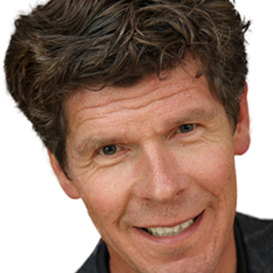
Editorial
By Jan Jonker

Country Focus: Canada
Connecting companies to enable access to new markets and global value chains

QA Consultants
Future-proofing our company

ITEA Success story: C³PO
C³PO democratises City Planning

Viewpoint on entrepreneurship
Innovare - to make new again
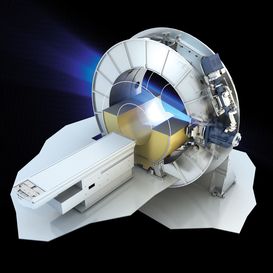
End user happiness: SoRTS and STARLIT
Tumour in sight during radio treatment
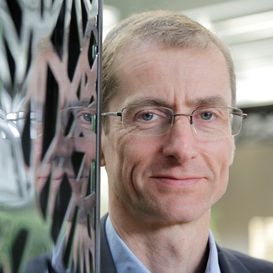
New ITEA Vice-chairman: Jean-François Lavignon
The new helmsman at the wheel
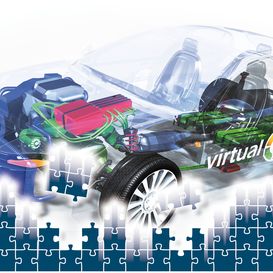
ITEA Success story: ACOSAR
An innovative simulation that saves time and money
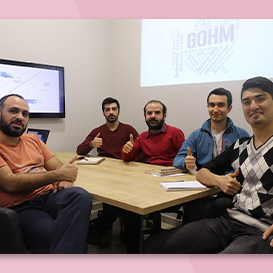
SME in the spotlight: GΩHM
Embedded intelligence to improve quality of life

The Smart City Business Event
The Road to Smart City Live

State of the Art
A compass for your projects
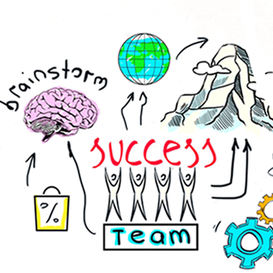
Online ITEA PO Days
ITEA Community clearly showed its agility at the Online ITEA PO Days 2020


